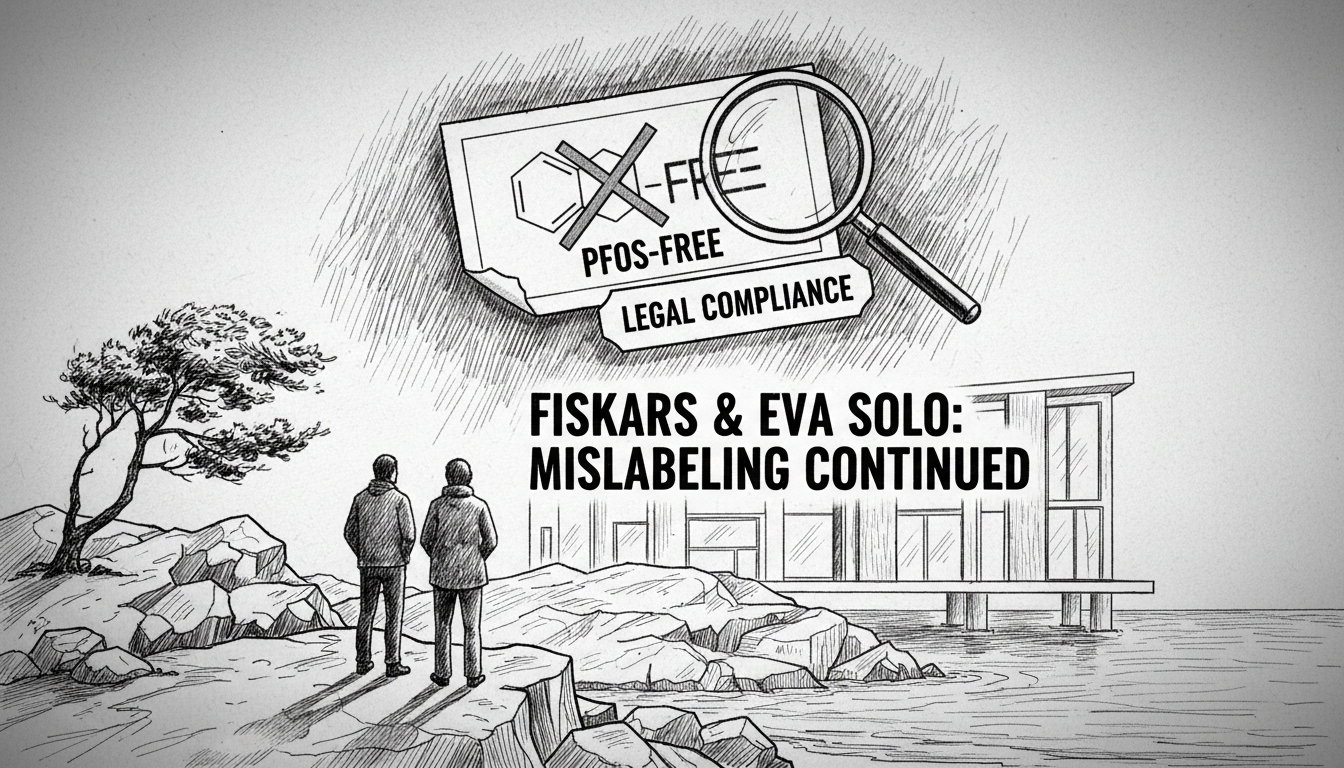Danish authorities say Fiskars and Eva Solo misled consumers about PFOS in cookware. The Consumer Ombudsman found both companies made false claims on packaging. They stated products were free from PFOS and PFOA chemicals. Both substances are already illegal in Danish cookware. Companies then covered the misleading text with stickers. But the stickers repeated the same problematic claims. Consumer Ombudsman Torben Jensen said companies cannot advertise compliance with basic laws. 'No frying pans may contain PFOA or PFOS,' he stated. 'A company cannot advertise that these substances are absent from its products when it simply follows the law.' The ombudsman reinforced marketing rules to Eva Solo in December. Fiskars received similar guidance. Both companies later applied corrective stickers to packaging. The stickers themselves became the new problem. They stated packaging cannot claim products lack illegal substances. Then they repeated that products were free from PFOS and PFOA. PFOS and PFOA belong to the PFAS group of fluorinated substances. These chemicals make products resistant to grease, water, and dirt. Manufacturers use them in food packaging, outdoor clothing, and non-stick cookware coatings. Fluorinated substances break down very slowly. They accumulate in humans and the environment. Many PFAS chemicals are harmful to health. The EU has banned several types. A 2022 study examined Danish market frying pans marketed as PFOA or PFOS-free. Researchers found nine examples containing PTFE fluorinated substance. PTFE is not illegal and is better known as Teflon. It also falls under the PFAS category. Using cookware with PTFE is not harmful by itself. The substance remains bound in the coating under normal use. It can release only at temperatures exceeding 250 degrees Celsius. This case shows how green claims can backfire when companies overstate basic compliance.
🇩🇰 Denmark
4 November 2025 at 10:23
38 views
BusinessFiskars and Eva Solo Repeated PFOS Mislabeling on Stickers
By Nordics Today •
Danish authorities call out Fiskars and Eva Solo for repeating misleading PFOS claims on corrective stickers. Both cookware brands initially falsely advertised products as free from already-banned chemicals, then compounded the error with problematic sticker labels. The Consumer Ombudsman emphasizes companies cannot advertise mere legal compliance as a special feature.

